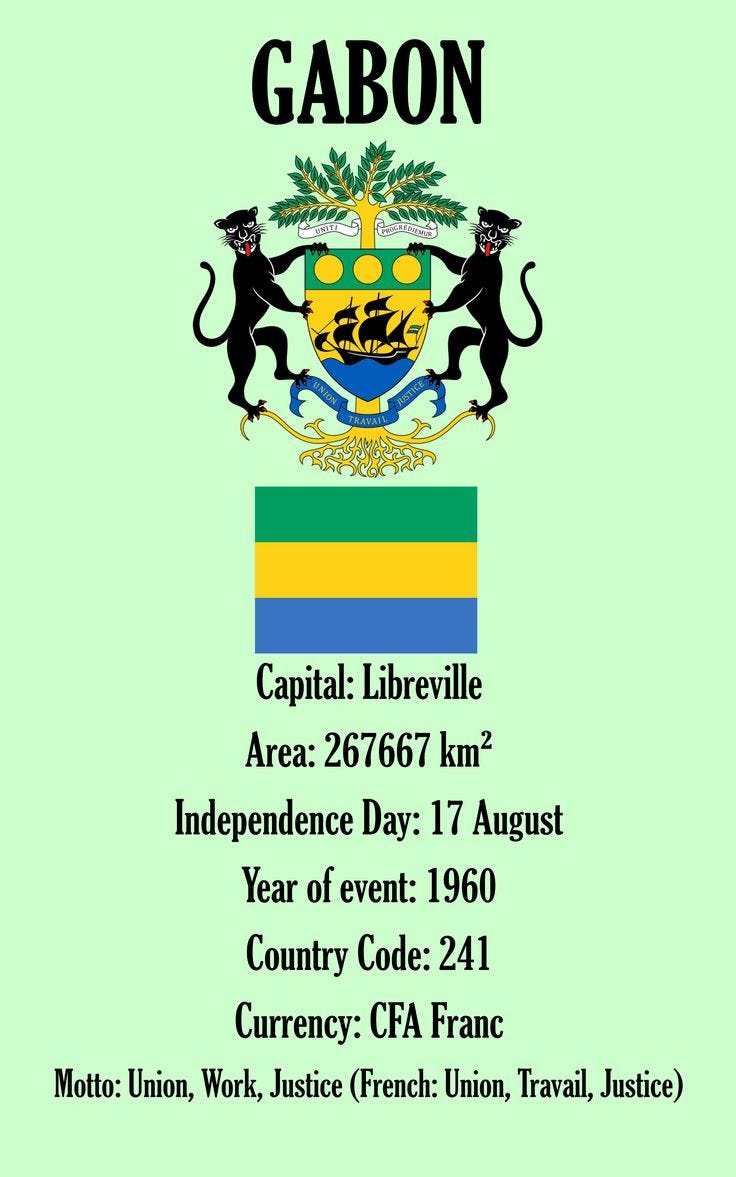Just days after the African Union (AU) announced it was suspending Gabon in response to a recent military coup, CNN Africa has detailed new policy shifts emerging from both the transitional authorities and the AU. This development places Gabon among several African states grappling with the aftermath of military takeovers. While each context is unique, the broader implications for democratic governance, foreign investment, and regional stability cannot be overstated.
In Gabon’s case, the AU has adopted a firm stance, halting the country’s participation in all AU activities and decision-making processes. The bloc has repeatedly affirmed its policy of “zero tolerance” for unconstitutional changes of government—a principle enshrined in its founding charter. Gabon’s suspension follows those of other member states in the last two years, reflecting the continent-wide dilemma of ensuring political stability while safeguarding citizen rights.
1. A Wake-Up Call on Governance Standards
The swift AU suspension underscores a growing determination among African nations to resist undemocratic seizures of power. Contrary to some perceptions that these suspensions lack teeth, they often trigger additional diplomatic and economic repercussions. For instance, foreign investors typically read the AU’s decisions as signals of instability; this can lead to delays or cancellations of large-scale projects. The new transitional government in Gabon must now grapple with the challenge of restoring confidence in its governance structures quickly—especially if it hopes to avoid long-term economic fallout.
Learning from Past Transitions
Countries like Sudan and Mali have faced similar sanctions. Their interim administrations often found themselves negotiating with a wary international community over access to aid, investment, and diplomatic support. Gabon could follow a comparable path, especially if it struggles to articulate a clear timeline for returning to democratic rule.
2. Balancing Security and Civil Liberties
Military takeovers often claim to rectify alleged misgovernance or corruption, yet they simultaneously risk trampling on civil liberties. The tension between maintaining security and respecting human rights is particularly critical in Gabon, where opposition to the previous government had already sparked social and political fissures.
The Role of Civil Society
Domestic and international civil society groups will be pivotal in holding the transitional regime accountable. Their efforts—through public advocacy, oversight, and constructive dialogue—help ensure that new policies do not further marginalize vulnerable communities. As Gabon negotiates with international partners, civil society can spotlight issues like press freedom, transparency in governance, and fair electoral processes.
3. Economic Repercussions for Gabon and the Region
Gabon is an oil-producing nation; disruptions in governance risk unsettling not only local development but also broader markets for natural resources. Suspended or renegotiated foreign contracts—whether in oil, timber, or infrastructure—can stall projects crucial to job creation and revenue.
Reviving Investor Confidence
Restoring investor confidence may require swift, credible commitments to constitutional rule and transparent financial management. The transitional authorities could undertake immediate reforms, such as appointing a civilian-led caretaker cabinet or announcing a concrete election timetable. These steps, however incremental, signal stability to the business community.
4. What This Means for Democratic Norms in Africa
Gabon’s suspension resonates beyond its borders. It reaffirms the AU’s intent to uphold democratic norms—a principle critical to maintaining a cohesive and stable continent. Yet, multiple coups in recent years (e.g., in Sudan, Mali, Niger, and Burkina Faso) raise questions about the AU’s enforcement mechanisms, as well as the root causes that make some African nations vulnerable to military intervention.
Need for Deeper Regional Cooperation
To address these coups comprehensively, regional bodies—such as the Economic Community of Central African States (ECCAS)—and the AU may need to explore more proactive measures:
Strengthening Electoral Observation: Enhanced monitoring of elections to deter fraud and provide quick redress for grievances.
Capacity Building: Providing technical and financial support to national parliaments, judicial bodies, and security sectors.
Conflict Resolution Mechanisms: Deploying mediators preemptively when early signs of political unrest emerge.
5. Policy Recommendations for African Leaders
Reinforce Constitutional Safeguards: Establish independent institutions (electoral commissions, ombudsmen) with the legal backing to curb executive overreach.
Boost Transparency Measures: Publish budget allocations, government contracts, and audits to deter corruption—one of the stated grievances behind some coups.
Engage Youth and Civil Society: Promote inclusive dialogues that integrate younger demographics and grassroots organizations, ensuring their voices inform governance priorities.
Strengthen Regional Solidarities: Collaborate within bodies like ECCAS or the AU to standardize best practices in security sector governance, conflict resolution, and election monitoring.
The Broader Implications for African Policy
The Gabon case reiterates the complexity of safeguarding good governance amid diverse political, economic, and social pressures. At a time when global partners may be recalibrating their development priorities—evident in shifting U.S. foreign aid policies under President Trump’s second term—African states must demonstrate internal coherence and unity. Credible governance reduces the risk of external shocks, whether from changing foreign aid directives or from internal power struggles.
#InclusivePolicy #AfricanGovernance #GoodGovernance #PolicyInnovation #LeadershipInsights #SocialJustice #DiversityAndInclusion #PublicPolicyAnalysis #CommunityEngagement #DEIResearch #ThoughtLeadership





